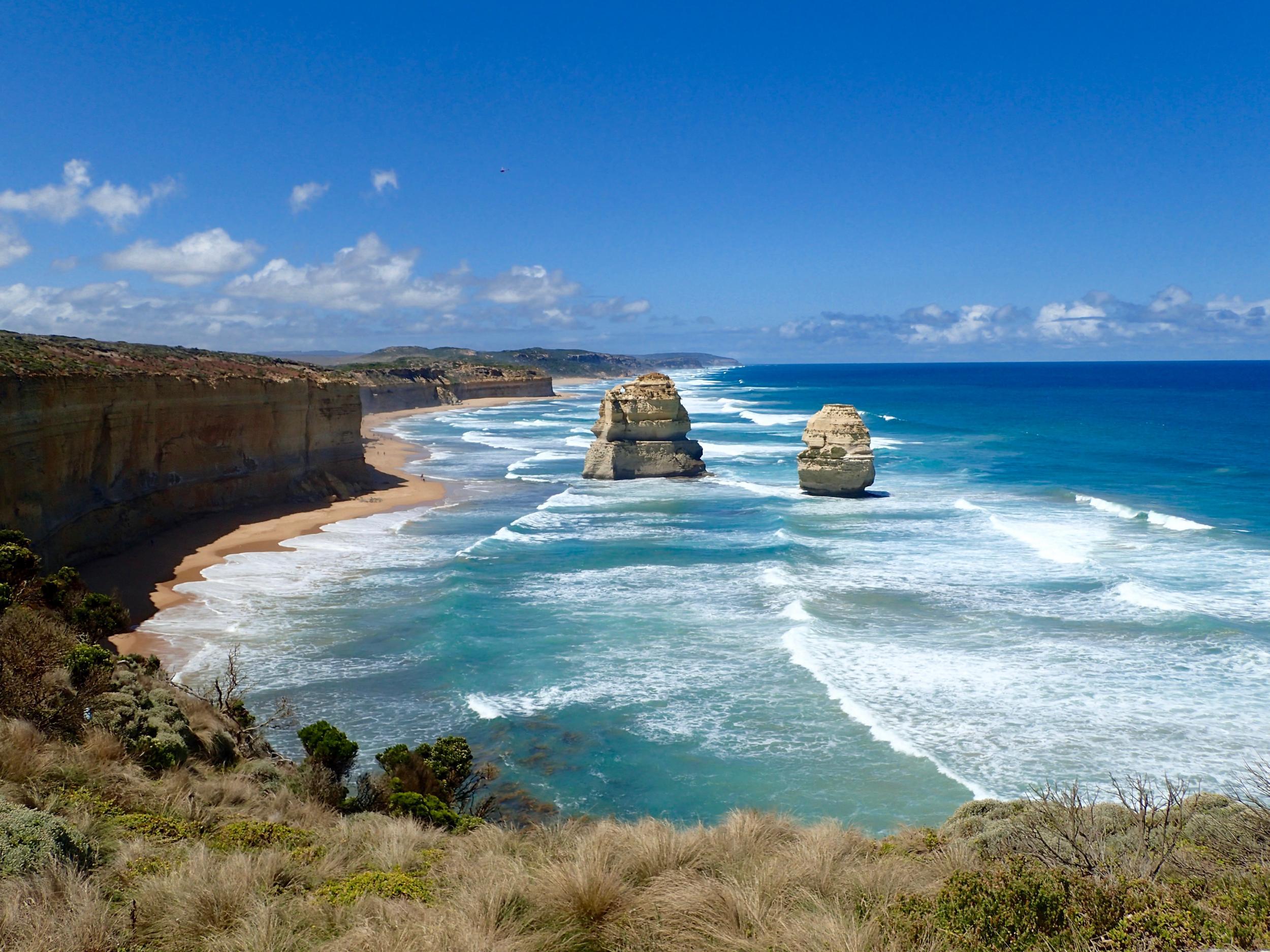Warming of oceans could be humanity's 'greatest hidden challenge', report warns
UK expert Sir David King says we are at 'a critical turning point in our development'

Your support helps us to tell the story
From reproductive rights to climate change to Big Tech, The Independent is on the ground when the story is developing. Whether it's investigating the financials of Elon Musk's pro-Trump PAC or producing our latest documentary, 'The A Word', which shines a light on the American women fighting for reproductive rights, we know how important it is to parse out the facts from the messaging.
At such a critical moment in US history, we need reporters on the ground. Your donation allows us to keep sending journalists to speak to both sides of the story.
The Independent is trusted by Americans across the entire political spectrum. And unlike many other quality news outlets, we choose not to lock Americans out of our reporting and analysis with paywalls. We believe quality journalism should be available to everyone, paid for by those who can afford it.
Your support makes all the difference.The warming of the oceans may become the “greatest hidden challenge” of our generation, a major new report has warned.
The 456-page document, published by the International Union for Conservation of Nature (IUCN), describes the effects of the huge amount of energy that has been absorbed by the sea in recent decades.
The scale of the changes is potentially huge affecting marine life from viruses, bacteria and plankton, fish and seabirds to the climate, weather and human health.
A vast amount of heat and carbon dioxide has been absorbed from the atmosphere by the oceans and there are fears of devastating consequences for the marine ecosystem – and, in particular a decline in fish stocks at a time when the world’s population is growing dramatically.
There is already evidence that plankton species, fish and other creatures are on the move in search of cooler temperatures.
Inger Anderson, the IUCN’s director general, said: “Ocean warming is one of this generation’s greatest hidden challenges – and one for which we are completely unprepared.
“The only way to preserve the rich diversity of marine life, and to safeguard the protection and resources the ocean provides us with, is to cut greenhouse gas emissions rapidly and substantially.”
Her warning was echoed by Sir David King, the UK Foreign Secretary’s special representative on climate change.
“After several thousand years we have arrived at a critical turning point in our development,” he wrote in the foreword to the report.
“Scientific analyses of the global climate system have provided us with the ability to understand the challenges created by rising greenhouse gas levels in the atmosphere, but despite the remarkable level of understanding achieved to date, there is much more work to be done.
“It is hoped that the challenges to the benefits we receive from the ocean ecosystems … will lead to a renewed interest amongst the political and social communities in the state of our oceans.
“To manage the risks will require both urgent actions and a quest for deeper scientific understanding. We will need this to protect the Earth’s ecosystems through sustainable living.”
The report says the oceans average temperature is expected to rise by between one and four degrees Celsius, with the most warming taking place in the Southern Hemisphere.
“Whilst rising carbon dioxide levels and increasing warming can occasionally have positive effects, the overwhelming evidence and predictions shown in this report are for a cocktail of negative effects, which we are only just starting to understand, but about which we know enough to be very concerned,” it says.
“The warming signs are clear to see, not only the current prevalence of bleaching of coral reefs around the world, but the increasing confidence of predictions that all coral reefs will be so affected by 2050, unless we change our ways, and quickly.
“Ocean warming and climate change are ultimately contributing to global homogenization of biodiversity, as vulnerable species become extinct and ‘non-native’ species from different biogeographic regions spread, overlap, and become established across the world’s ocean.”
The heat content of the upper 700m of the world’s oceans has vastly increased in 20 years – by the equivalent of 240 times the total amount of energy used by humans worldwide in 2013.
The average global ocean temperature is expected to rise by between one and four degrees Celsius by 2100, but the figure is expected to be higher in the north and south poles.
“Since the 1990s the atmosphere in the polar regions has been warming at about twice the average rate of global warming,” the report says.
“There is likely to be Arctic warming and ice loss, and possibly the essential removal, in some years, of the summer Arctic sea ice within the next few decades.
“In the Antarctic the extent of the sea ice has been growing at a rate of about 1.3 per cent per decade, although there is strong inter-annual variability.”
The last two decades has seen changes and an intensification of the El Niño weather events, the report adds.
The warming of the ocean is one way the world could reach a ‘tipping point’, which would send temperatures higher and higher.
There is a vast amount of frozen methane hydrate — a much more potent greenhouse gas than carbon dioxide — on the sea floor.
“Increasing water temperature could release this source of carbon into the ocean and ultimately into the atmosphere,” the report warns.
The experts pointed to a warning made in 1956 by the meteorologist Carl-Gustav Rossby.
“Nature can be vengeful,” he said. “We should have a great deal of respect for the planet on which we live.”
Join our commenting forum
Join thought-provoking conversations, follow other Independent readers and see their replies
Comments